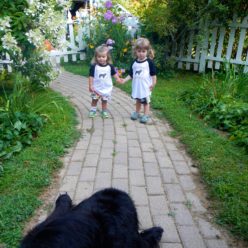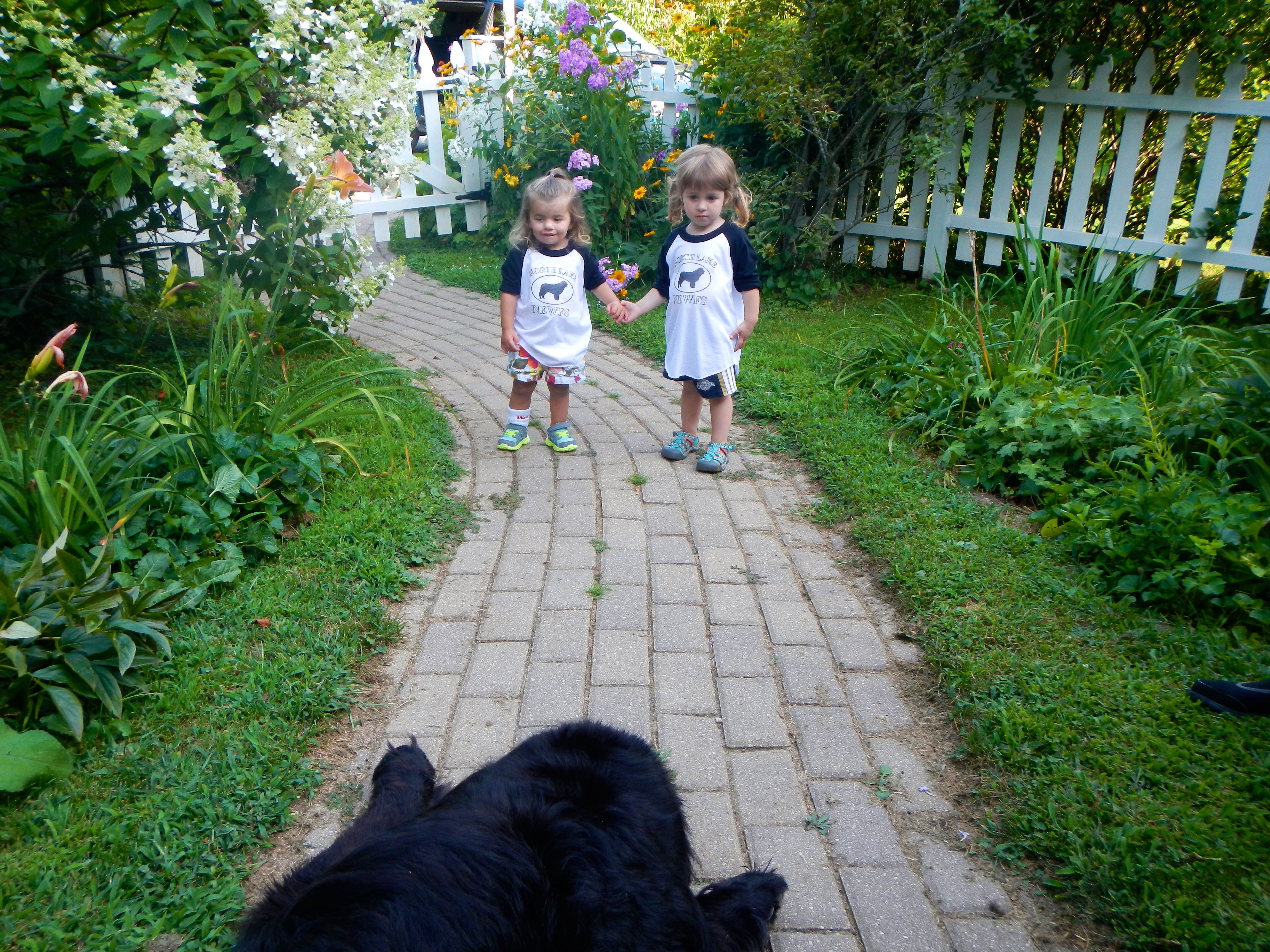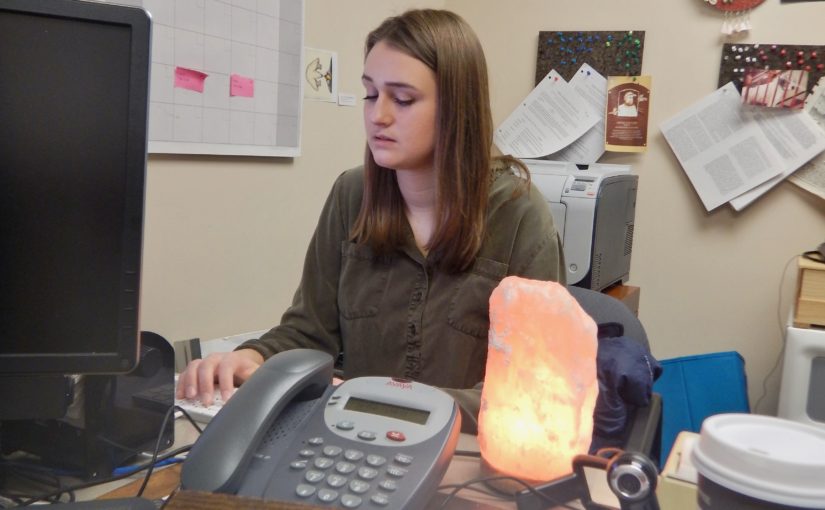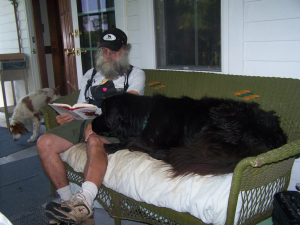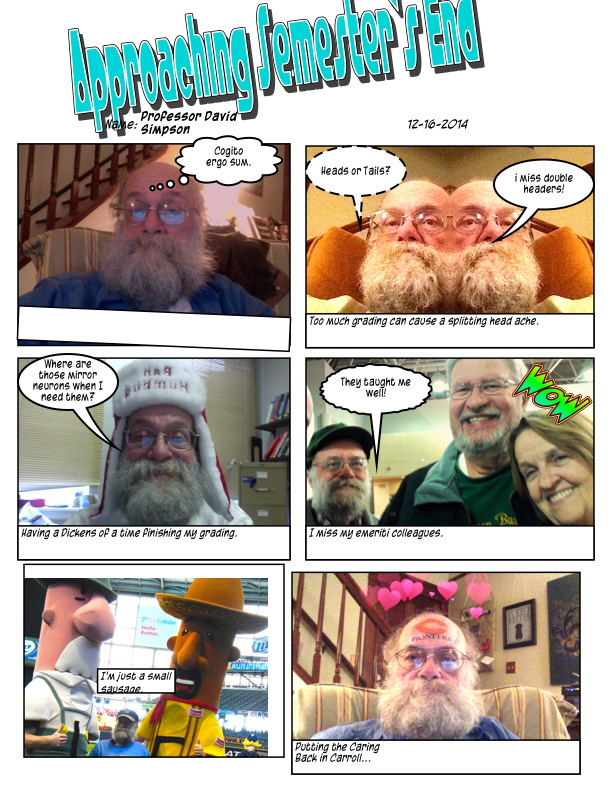
And some comfort from Mr. Rogers
Month: April 2018
Curious David Redux: Dog Memories






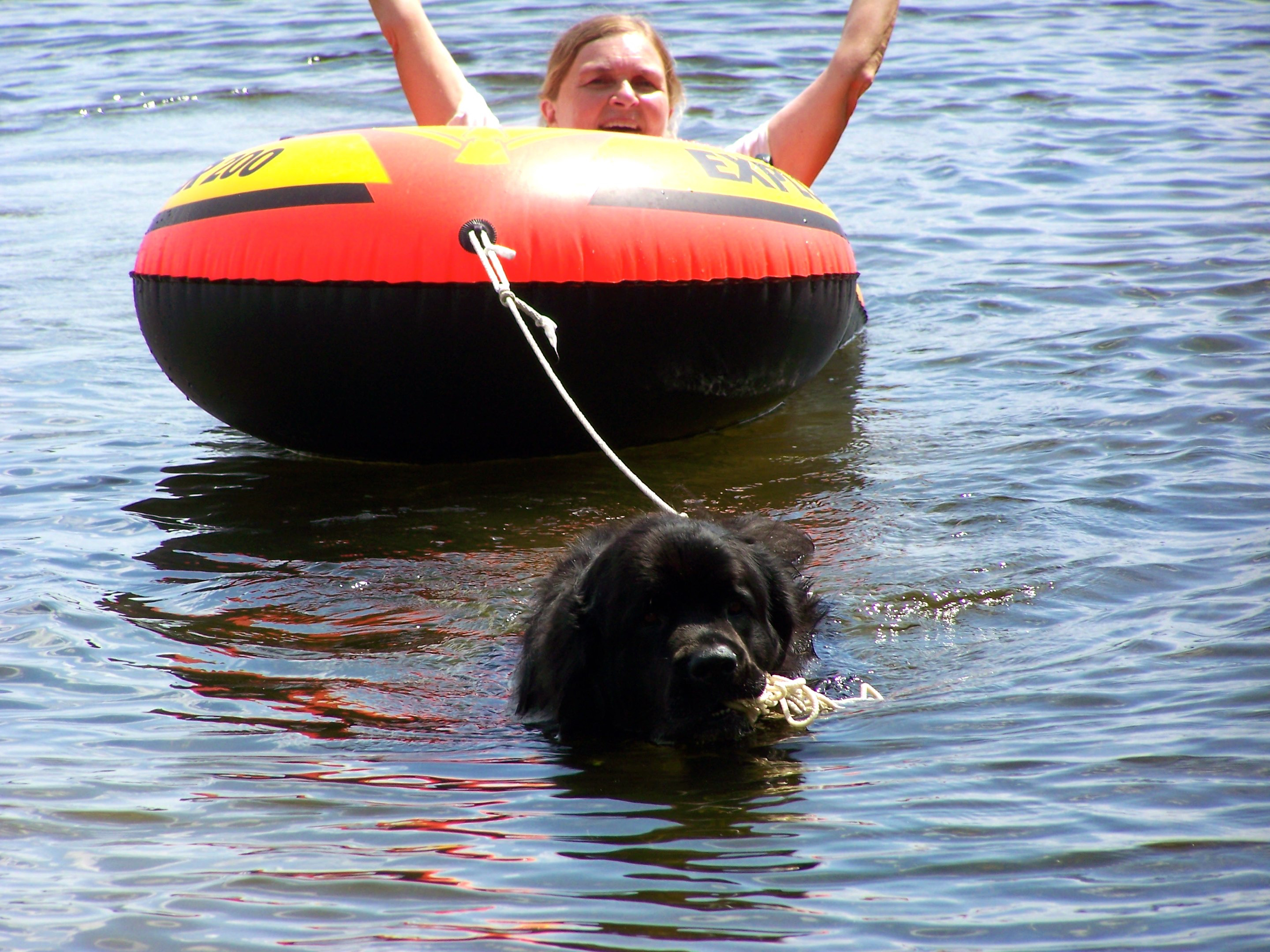
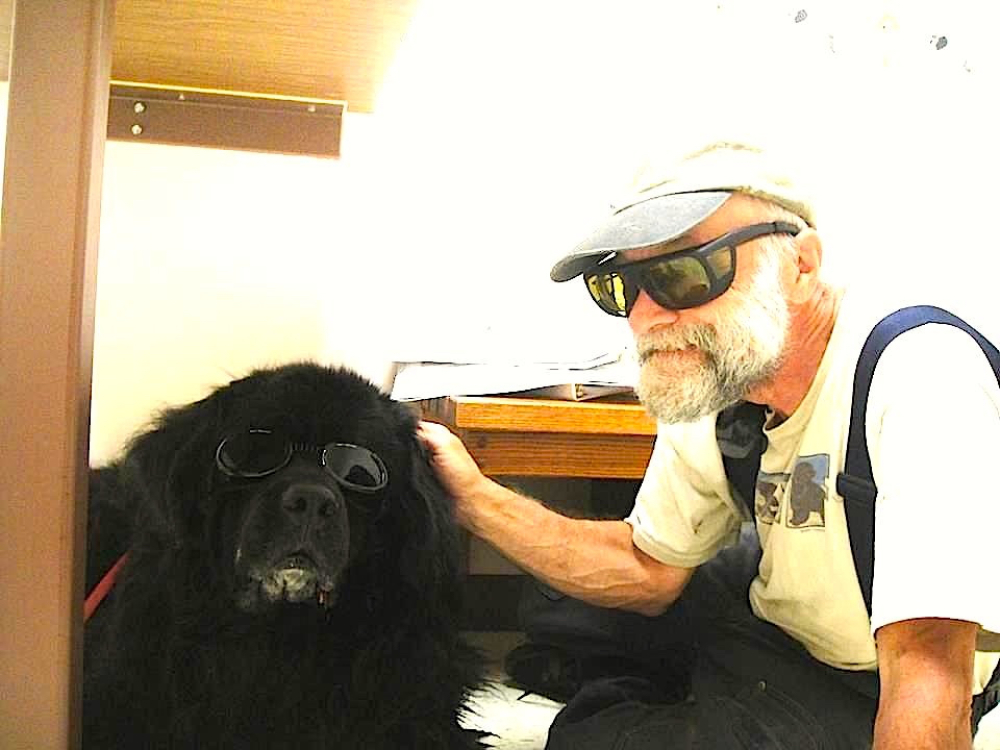
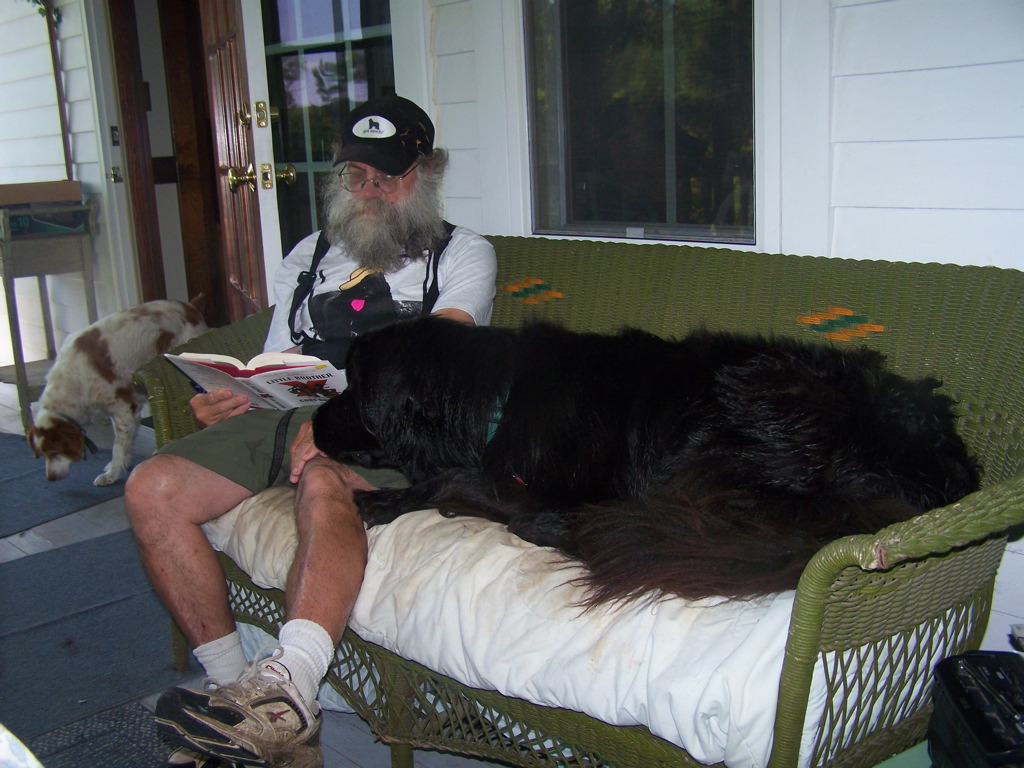






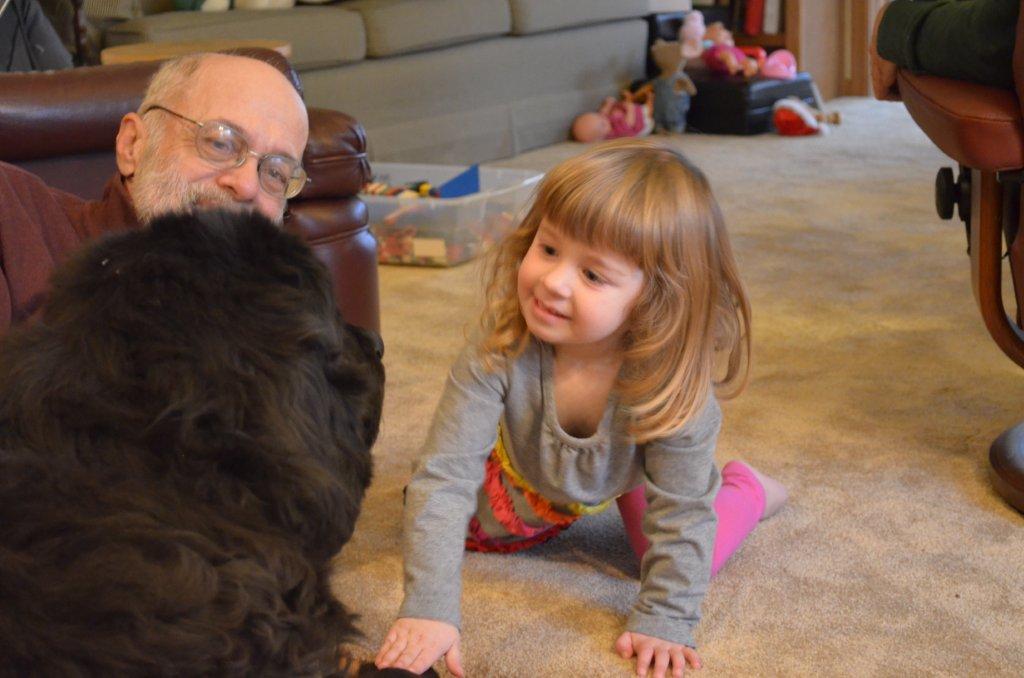
Curious David Redux: Learning Resources Surround Me
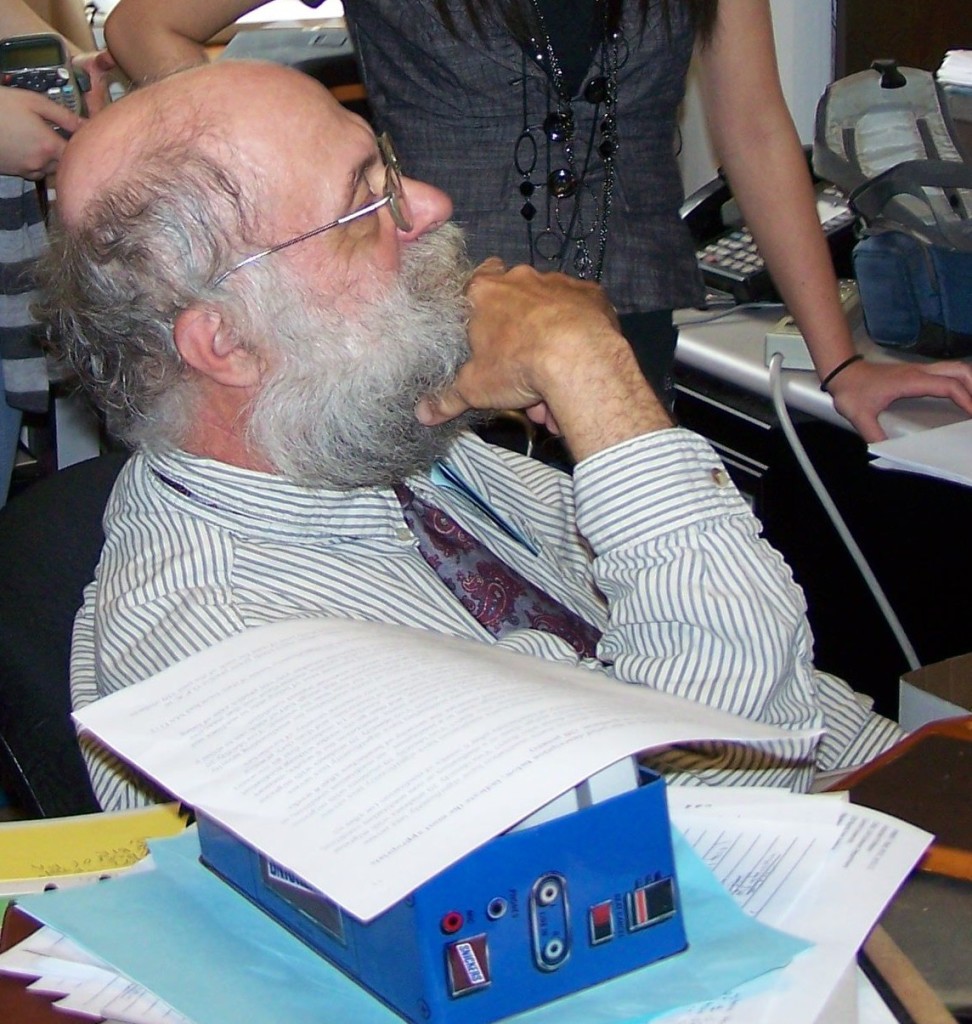
It has been an interesting number of learning years since when I studied Latin at Howland High School in Warren, Ohio.
 I’ve outlived many of my best teachers but am continually blessed with opportunities to learn from and with those much younger than I. One can indeed, with patience and compassion, teach an old dog new tricks. I regularly learned valuable lessons from Robin the Newf even when she was ailing.
I’ve outlived many of my best teachers but am continually blessed with opportunities to learn from and with those much younger than I. One can indeed, with patience and compassion, teach an old dog new tricks. I regularly learned valuable lessons from Robin the Newf even when she was ailing.

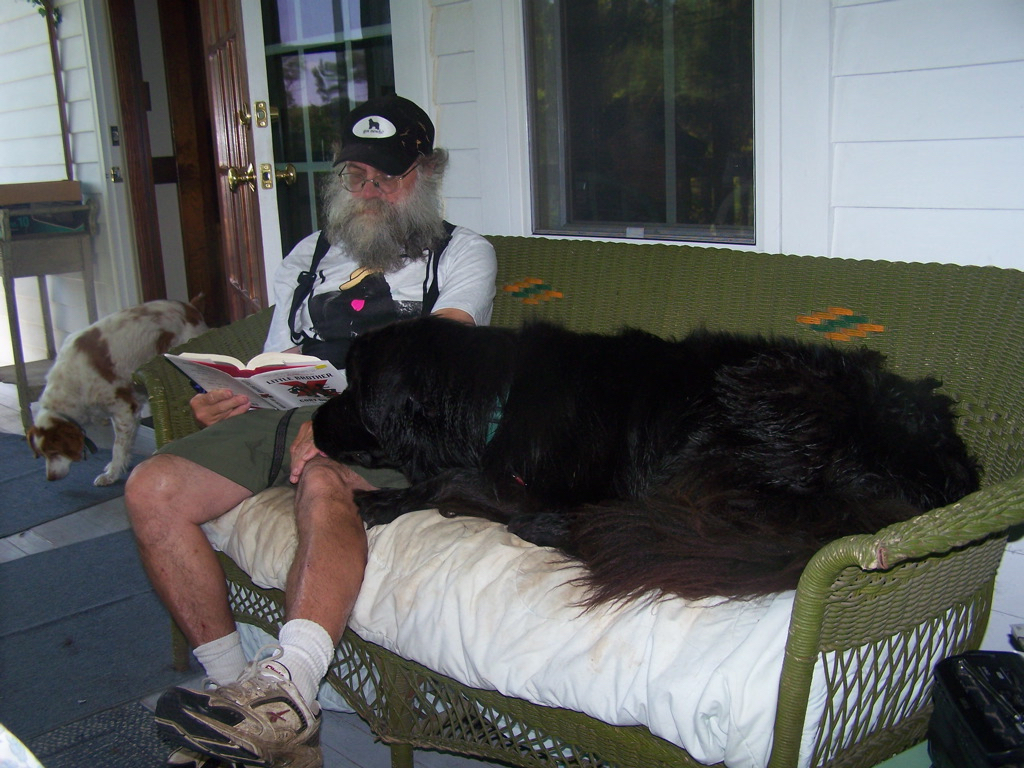
Surrounding myself with bright young student assistants has always proven for me a valuable source of learning.
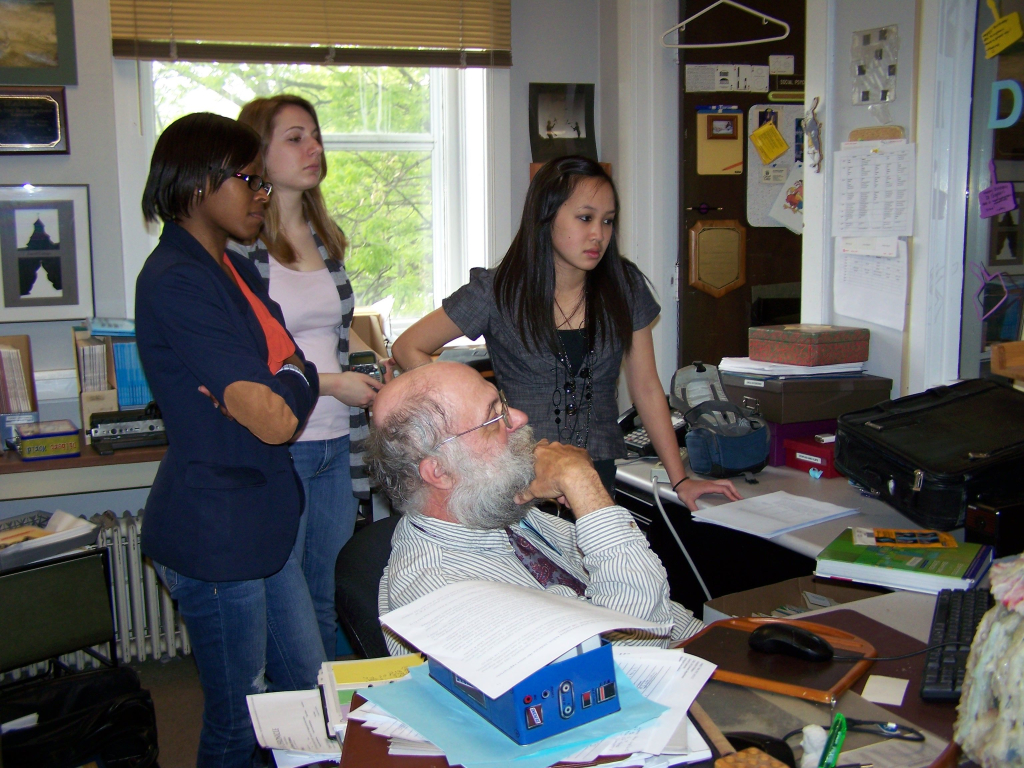
I continue to learn much from observing, listening to, and playing with my grand-nieces and nephews. They so often make me smile, laugh, and give thanks.
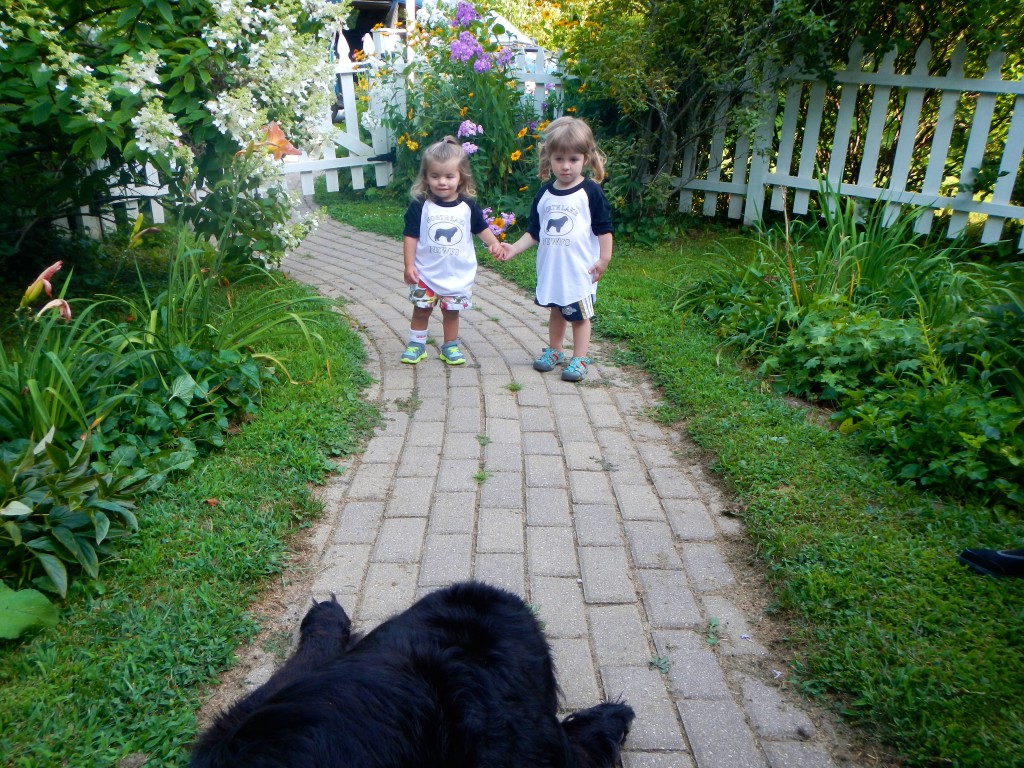

Greg Schneider, my business partner and his wife Jane, continually provide me with opportunities to grow, to learn,to think and to share my areas of expertise while benefiting from their wisdom, experiences, and business acumen. And I learn from Greg about fishing on North Lake during our annual celebration of our partnership!
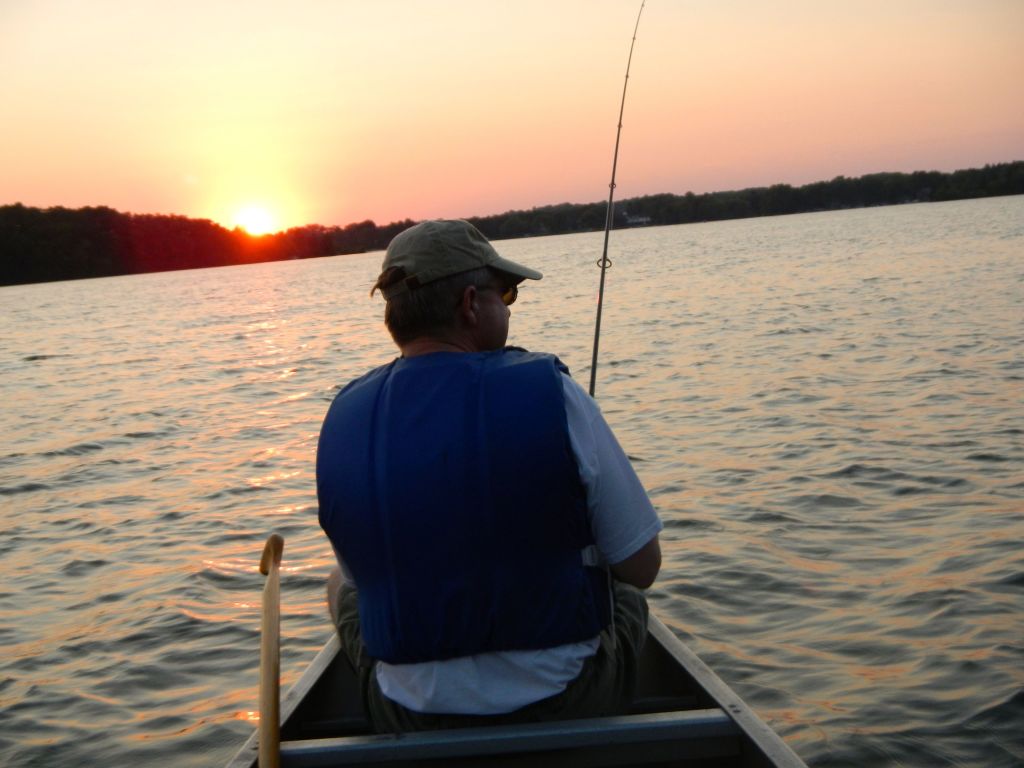
Curious David in CarrollLand: Reflections on “Neurobics”
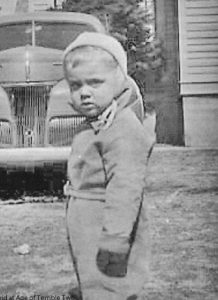
In preparing for a Fall semester research seminar, I am reading a number of books dealing with aging, brain fitness, and maintaining brain health. My preference is to read scholarly works based upon good science. I also tend to trust detailed thought pieces from say, The New York Times (e.g. this one) or this piece from The New Yorker “Mentally Fit: Workouts at the Brain Gym.”
How, though, could I resist the book Keep Your Brain Alive which claimed to have 500,000 copies in print and which promised me opportunities to discover the secrets of “neurobics?”
Katz & Rubin’s (2014) Keep Your Brain Alive: 83 Neurobic Exercises to Help Prevent Memory Loss & Increase Mental Fitness was fun to read. The authors are witty, playful, and creative. Chapter 2 gives an accurate, very elementary explanation of “how the brain works.” The research they cite, however, is “classic” and outdated. Their “Neurobics” concept (“experience novel and unexpected things and enlist the aid of all of your senses”) is common sensical but there is no body of research supporting the efficacy of the exercises. Save your money and get the gist of their ideas by visiting their web page here.
Curious David Redux: Experimenting with WordPress.Org
Still clowning around with transitioning to WordPress.org from WordPress.com. I am helped immensely by the physical presence and attendance to details of my student research assistants.
As I move closer to publishing some ebooks, I am going to experiment with different capabilities of WordPress.com vs. WordPress.org. Forgive any confusion I cause as I fumble a bit.
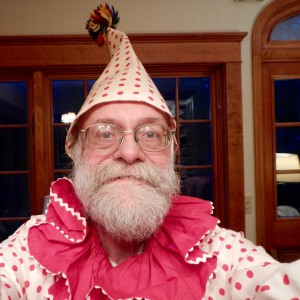
Books I hope yet to finish reading and writing reviews for this semester:
1. The Sharpbrains Guide to Brain Fitness (2013). Thanks to Alvaro Fernandez for helpfully responding to my drafted notes of the 2nd edition of his book. I look forward to seeing the 3rd edition and to attending the 2018 virtual summit.
2. Happiness is a Choice: Lessons from a Year Among the Oldest Old (2018)
3. The End of Old Age: Living a Longer, More Purposeful Life (2018)
4. Two Weeks to a Younger Brain. (2015)
5. Keep Your Brain alive: 83 Neurobic Exercises to Help Prevent Memory Loss & Increase Mental Fitness (2014)
6. Not Pink (2018). More can be found here about colleague Pegg Kasimatis’s new novel
Curious David Redux : Food for Thought

I am over 50 years of age though when with my students I forget and am closer to their age:) I am very impressed by recently released Global Council on Brain Health reports dealing with brain health for adults ages 50 and older. Among those I have so far read are those dealing with nutrition (found here), social engagement (found here), sleep (found here), physical activity (found here), and cognitively stimulating activities (found here).
That most recent detailed report draws upon the expertise of thirteen specialists from four continents and from gerontology, neuropsychology, neurology, neuroscience, psychology, public health and speech-language pathology who met and agreed upon ten best-science-based consensus statements summarizing the impact of cognitively stimulating activities on brain health. The report’s appendices list the participants, provide a glossary with carefully defined terms, share the discussion questions framing the deliberations, clearly explain differences, reveal disclosure statements of potential conflicts of interests, indicate sources of funding, and provide selected references. I find these reports understandable, well-written, full of practical and actionable advice, myth-busting and extremely important. Definitely enriching food for thought.
Curious David Redux: Dropping Off the Net
Once I have tearfully witnessed Commencement, I don my invisibility cloak. From the perception of many persons used to finding me ubiquitous, I disappear from the Net. Summer is a time for being outdoors, for travel, for gardening, for playing with children, for taking advantage of our living on North Lake and for being mentored by Leo the Great Pyrenees.
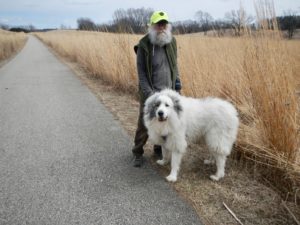
Here are prior expressed summer ruminations when Robin the Newf mentored me.
After last semester I pretty much dropped off the Net for a couple of months (due to an unreliable home networking situation) and spent time reading printed books, hard copies of magazine subscriptions and paper newspapers. I highly recommend it. I am convinced that online reading is a different experience. I look forward to reading Naomi Baron’s latest thoughts on this.
Here are books I found well worth my having read:
- Michel Faber’s The Book of Strange New Things– praised by several of my favorite contemporary authors David Mitchell, Philip Pullman, and Yann Martel.
- John Scalzi’s Lock In: A Novel of the Near Future.
- David Mitchell’s The Bone Clocks.
- Cory Doctorow’s Information Doesn’t Want to Be Free: Laws for the Internet Age.
- Gabriella Coleman’s Hacker, Hoaxer, Whistleblower, Spy: The Many Faces of Anonymous
- Andy Weir’s The Martian
I presently am finishing Meg Wolitzer’s The Interestings and am looking forward to reading Ann Morgan‘s The World Between Two Covers: Reading the Globe when it becomes available in the US in May 2015. Before then I plan to read Emily St. John Mandel’s Station Eleven.
Tomorrow, after my classes, I’ll invite my students into my office to take any books I have read. It always pleases me to see them walk off excitedly with some pleasure reading.
What books do you recommend that I read? That I encourage my students to read?
Curious David Redux: Exploring E-book Publishing Tools
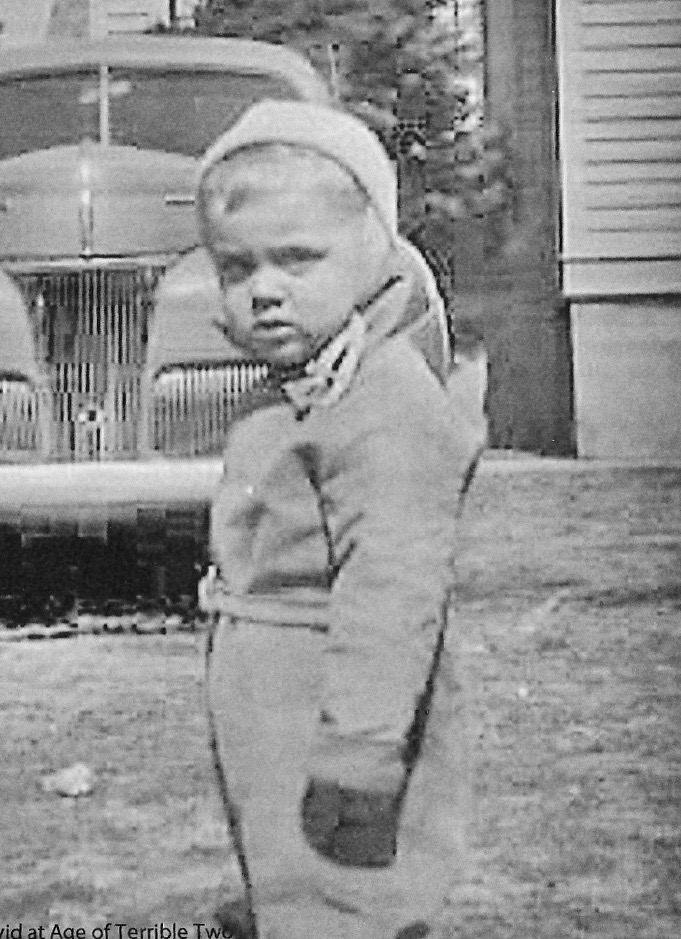 For the past 40 years I have taught a course called Statistics and Experimental Design required of Carroll Psychology majors. Here is a brief description of HOW I teach PSY205 (click the “HOW” link).
For the past 40 years I have taught a course called Statistics and Experimental Design required of Carroll Psychology majors. Here is a brief description of HOW I teach PSY205 (click the “HOW” link).
Below is a first draft of an ebook I am writing with the able assistance of some Carroll students. Each hyperlink below is a “module”. Thanks to Alison, Arianna, Tia, and Lizzy (each of who is in graduate school or will be in the Fall) for helping me create this draft. I plan to “publish it” using for the first time Pressbooks software. I share this work in progress at this time welcoming feedback. I also have made it available to my present students for end of semester review
- Still Looking for ways to Improve Courses After 40 Years of Teaching (Part 1 of 2)
- Retooling and Sharpening the Saw
- What data analysis should I use (you need not enter your real name or email)?
- Teaching Tools: SPSS, inStat, starQuiz, Camtasia and Research Randomizer.
- On Engaging Students (Part 2): Adventures with StarQuiz and SPSS
- Learning by Teaching: Alison and Lizzy’s Guide to Using SPSS Data Analysis for Simple Linear Regression
- Two-way Between Subjects ANOVA Using SPSS (Part 1)
- Review of One-way Between Subjects ANOVA using SPSS
- t-Time: Three Short SPSS Screencasts for PSY205
- Something Old and Something New: A brief Introduction to Effect Size Statistics
Curious David Redux: Reflections on Aging
When I was a graduate student, I would religiously read every article in every journal to which I subscribed. Alas, I have fallen out of that good habit. Perhaps I need to finish reading Charles Duhigg’s books like this one here.
One of my resolutions as I wind up (and wind down!) my teaching career has been to invest more time in reading the scholarly journals to which I subscribe and weaving the knowledge both into my teaching or my life. My research interests across the years have been wide-ranging (impression formation, subliminal perception, the Mozart effect, effects of color on behavior, internet learning tools) no doubt in part due to my Oberlin College liberal arts education. My current research interests now are focused on aging, maintaining brain health, brain fitness training, truth in advertising, and memory —- no doubt because I am older as is evidenced in the photos above!
As I prepare for a research-oriented semester (two sections of Statistics and Experimental Design) and a Research Seminar, an article in the December 2013 issue of Psychological Science intrigued me because of the simplicity of the experimental design and of the data analyses and because of the importance of the results (if replicable). In an article (found here) entitled “Aging 5 Years in 5 Minutes: The Effect of Taking a Memory Test on Older Adults’ Subjective Age” Hughes et al. experimentally demonstrated that older (but not younger) adults felt subjectively older after taking (or even after expecting to take) a standard neurological screening test which dealt with memory! Tremendous implications here for future research on the effects of context on self-perceptions of aging.
I’m doing a lot of reading in preparation for my Fall 2018 courses. Among the books I am carefully reading are:
- The Sharpbrains Guide to Brain Fitness (2013). I found the virtual conference that I attended last year of tremendous value (more about it can be found here or in some of my earlier blogs). I look forward to reading the 3rd revised edition when it becomes available. Author Alvaro Fernandez informs me that it might be available in three to four months.
- Happiness is a Choice: You Make (2018): Lessons from a Year Among the Oldest Old by John Leland.
- The End of Old Age: Living a Longer More Purposeful Life (2018) by Marc E. Agronin. An interview with the author can be found here.
- Two Weeks to a Younger Brain (2016) by Gary Small.
- Everything written by Carroll alumna Dr. Michelle Braun who kindly met with my research students for an hour last year to share her insights about brain health. Much of her good work can be found here.
What other books should I carefully examine?
